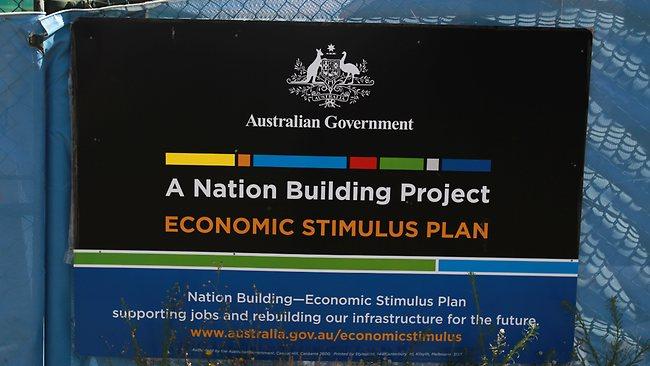Taskforce chief lashes Building the Education Revolution scheme
A KEY recommendation from the body set up to probe the $16bn school building program has not been implemented, an executive on the taskforce says.

THE federal government has failed to implement the key recommendation of its own taskforce set up to investigate the troubled $16 billion school building program, with one of the taskforce's senior executives accusing Labor of running scared from a showdown with powerful construction unions.
The $14 million taskforce into the Building the Education Revolution program handed down its final report in July last year, with the central recommendation being a Productivity Commission inquiry into the construction industry.
One year on, the Gillard government has yet to order the review, prompting a stinging attack from the taskforce's deputy chairman, David Chandler.
Mr Chandler, who has more than 35 years' experience in the construction industry and was the most experienced member of the taskforce in terms of construction experience, said reluctance to order the inquiry was likely to be a result of the federal government's fear of upsetting trade unions and because of its poor relationship with many states.
"There are suggestions the federal government might be disinterested in such an inquiry on the grounds it would be an exercise in investigating unions and labour practices," Mr Chandler said. In addition to the government wanting to avoid a potentially ugly confrontation with the unions leading into the next federal election, Mr Chandler said the difficult relationship between the federal and state governments was leading to ongoing waste in government-funded infrastructure projects.
"The states don't consider it the federal government's right to ask them what the cost of construction for each project is," he said. "It's more a case of 'put it in a truck and send it to us and how we spend it is none of your business'." He said the federal government had a "duty of care" to taxpayers to establish benchmarks for the cost of government-funded infrastructure, which did not exist beyond those created for schools by the BER inquiry.
"What we found under the BER was that as a nation we have absolutely no basis whatsoever to form a view as to whether governments are achieving value for money with construction jobs," Mr Chandler said. "If you are not measuring cost then you are not managing it."
The taskforce into the BER, which was headed by former investment banker Brad Orgill, was launched in 2010 and handed down its final report in July last year before being disbanded.
The BER taskforce found the nation's two most populous states, NSW and Victoria, had failed to deliver value for money under the scheme, with buildings delivered to NSW public schools 27 per cent more expensive than those delivered to NSW Catholic schools and 60 per more expensive than buildings delivered to independent schools in that state.
Victorian public schools were charged $3075/sq m for buildings compared with $2406 for Victorian Catholic schools and $1975 for Victorian independent schools.
Alongside calling for the productivity inquiry, the taskforce made 21 other recommendations.
A spokesman for Workplace Relations Minister Bill Shorten would not comment on why the government had not implemented an inquiry into the construction industry but said it had "undertaken to consider" a review "subject to other priorities".
The government did not respond when asked whether its failure to instigate a construction industry inquiry was related to the wishes of the union movement.
Construction, Forestry, Mining and Energy Union construction assistant national secretary Lindsay Fraser strongly rejected calls for such an inquiry.
"We have had too many inquiries into the construction industry that have been set up as ideologically biased exercises in union-bashing," Mr Fraser said. "I note that the Orgill report found that industrial disruption played no role in problems with the BER, and found that issues such as the quality of project management and public works capacity were much more important."
Mr Chandler said the BER experience indicated such an inquiry would be far more focused on the managerial side of construction productivity, with union-related matters far less of a concern now than in the past.


